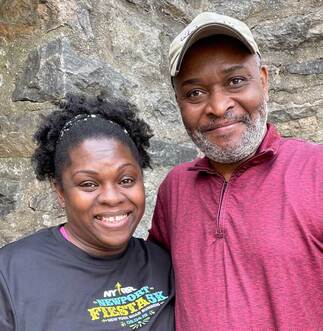
Sherman and Sobeyia have been volunteering for several months with our Food Justice Ministry. In addition, they were the main power behind the transformation of our parish hall into a room that could host the vaccination clinic this past month!
They are Episcopalians and had been going to another church, when they discovered Church of the Mediator, which is much closer to their home. We are so glad to have them!
They are Episcopalians and had been going to another church, when they discovered Church of the Mediator, which is much closer to their home. We are so glad to have them!

 RSS Feed
RSS Feed
